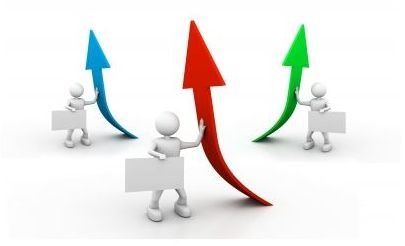Which Works Better: Expectancy Versus Goal-Setting Theory for Your Employees
Expectancy vs. Goal Setting Theories
We can thank Victor Vroom for the expectancy theory first written about in his book Work and Motivation (1964). Basically the theory states, a worker expects to receive (reward, pay) for efforts produced. The rewards, wages, or incentives are usually agreed upon by the employer and employee.
As the theory goes, if the employee wants the end result, he will be motivated to work for it.
Goal setting works a little differently. A salesperson, for example, may be told to achieve a reward above normal salaries or wages; he must meet the set goal. He may be told if he sells 20 units, he’ll receive standard wages, but once he hits 21 and above, the incentives (wages) increase. In today’s world, this theory supposedly motivates the employee to work harder to gain more money as the end result.
So, which works better, the expectancy versus goal-setting theory? As a business owner for over 16 years, I think the answer to that question is—it depends on the employee.
Image Credit (FreeDigitalPhotos)
I Expect It, So Set Me a Goal!

The workforce of today is not that of generations past—and if you’re an employer—you already know this to be true. More and more, today’s employers wonder what has happened to work ethic or pride in the quality of one’s work. While this isn’t the case in every work environment, many employers and HR managers look to companies that go above and beyond by offering free lunches, exercise rooms, childcare, casual clothing requirements, and flexible schedules to improve productivity and job satisfaction.
Most companies that offer these diverse benefits, however, are large and may not be representative of your company. The small business owner may not be able to offer such extras, or the owner may not feel the “extras” are needed if he provides fair pay for work performed.
As a small business owner, I think there are advantages and disadvantages to both theories—some shine with goal setting where with others, the expectancy theory is the only way to achieve productivity and reliability.
Image Credit (FreeDigitalPhotos)
Define Employees and Then Set a Theory

At my workplace, I have a sales staff, office workers, and automotive technicians. One would think that both the sales staff and technicians would be better motivated by goal setting. Sell a certain amount of cars, get a higher incentive; or repair so many vehicles correctly, receive a monetary bonus. You may also think all office workers or support staff would be motivated by the expectancy theory. In both cases, you’d be wrong. In order to determine what theory works best, first you must define the employee and then apply the theory. Let’s look at some examples:
- Salesman Bob – My sales manager can set sales goals for Bob every month that mean nothing to him. He is motivated more by just knowing he’ll receive his regular wages and anything on top of that is just icing on the cake. To Bob, he knows his job is to sell vehicles, yet goals do not motivate his performance to a higher level. To combat this and increase productivity, I utilize the expectancy theory with Bob. Why? Bob feels pressured by goals but expects to get paid for producing, so it’s best to keep both him and the company happy by offering him agreed upon compensation that is a constant.
- Accounting Controller Sally – Sally sees how much the company makes and spends every month. She frowns when expenses outweigh the revenues. For Sally, because she encourages department managers to keep costs down, if the company realizes a profit, a bonus percentage of the net profit motivates her to keep up that encouragement, which in turn benefits the company.
Image Credit (FreeDigitalPhotos)
More Employee / Theory Examples

Here’s a continuation on what theory is best, the expectancy versus goal setting theory:
- Technician Wayne – Wayne is highly motivated by receiving extra bucks at month’s end if he can achieve a set goal of repairs with no comebacks. His work is streamlined, fast, and accurate and he expects others to do the same. With Wayne, without his goals, he would not be as productive.
- Technician Louie – Because Louie is an entry-level technician (mostly lube-oil-filter jobs), he needs time to learn his craft. Goal setting for Louie would not be fair to him or the company—most likely he would be unable to achieve the set goal, making him feel underproductive and less motivated to do better.
- Salesman Tom – Tom loves goals and the higher the better—and he usually achieves the goals set for him each month. On the rare occasion he doesn’t, he blames himself, not the goal level set. This works best for Tom and the company and those highly motivated by goals will indeed reach them most of the time.
Image Credit (FreeDigitalPhotos)
What’s Right for You?

To help you define your employees, utilize some interpersonal or “soft skills.” Even employee questionnaires or surveys can help you determine the type of worker and his or her wants.
Personal interviews and pre-hire discussions can also help you determine which is best for an employee—the expectancy theory or goal setting. Because today’s worker is diverse, wants different things, has a different personality from others, and meets varying life challenges, understanding who these workers are will help you make a better decision on which theory will work best.
When it comes to expectancy versus goal-setting theory, it will depend on the employee’s mindset, productivity level, and other factors to help you determine which theory will benefit both the employee and your company.
Image Credit (FreeDigitalPhotos)
